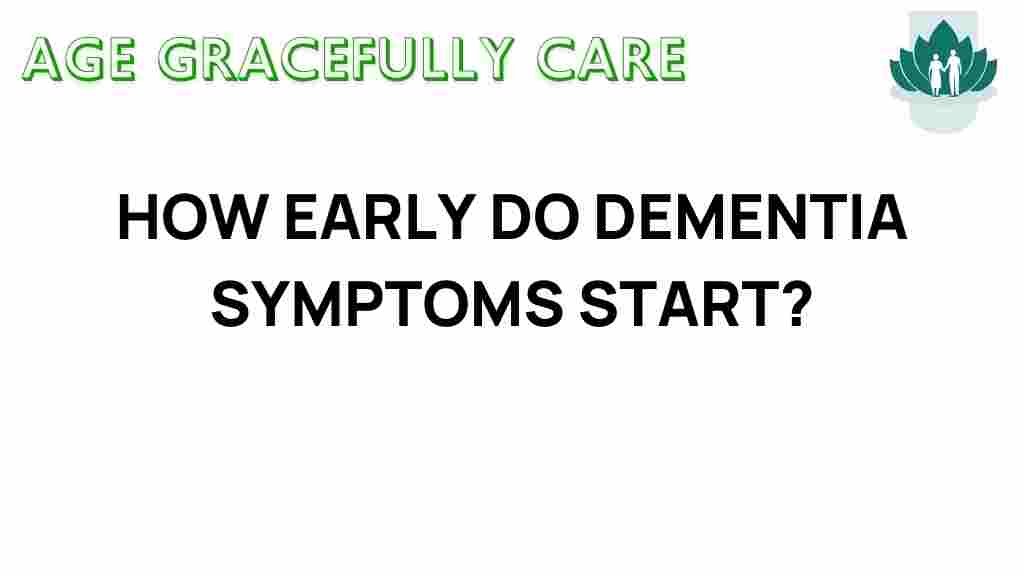Dementia Symptoms: Unveiling the Early Signs
Dementia is a term that describes a range of symptoms associated with cognitive decline, impacting memory, thinking, and social abilities severely enough to interfere with daily life. As we age, the risk of developing neurodegenerative diseases, such as Alzheimer’s, increases. Understanding the early signs of dementia symptoms is crucial for early diagnosis and intervention, which can significantly impact the quality of life for individuals and their families.
Understanding Dementia and Its Types
Dementia is not a single disease but rather a general term that encompasses various conditions affecting the brain. The most common form is Alzheimer’s disease, accounting for approximately 60-80% of dementia cases. Other types include vascular dementia, Lewy body dementia, and frontotemporal dementia.
Each type of dementia has its unique characteristics, but they all share common symptoms that can indicate cognitive decline. Recognizing these symptoms early can lead to timely medical intervention and better management of the condition.
Common Early Signs of Dementia Symptoms
The early signs of dementia symptoms can vary widely from person to person. However, some common indicators include:
- Memory Loss: One of the first signs of cognitive decline is often forgetfulness, particularly when it comes to recent events or new information.
- Difficulty with Problem-Solving: Individuals may struggle with planning, organizing, or solving problems that once seemed straightforward.
- Confusion with Time or Place: People may lose track of dates, seasons, and the passage of time, leading to disorientation.
- Challenges in Completing Familiar Tasks: Activities that were once routine, such as cooking or managing finances, can become challenging.
- Changes in Mood and Personality: Mood swings, anxiety, depression, or withdrawal from social activities can signal cognitive decline.
- Difficulty with Language: Individuals may have trouble finding the right words or following conversations.
When Do Dementia Symptoms Begin?
Understanding when dementia symptoms begin can provide valuable insights into the progression of the disease. While the onset varies among individuals, early signs can manifest as early as 5 to 10 years before a formal diagnosis is made. Here are some key points to consider:
- Age Factor: While it is essential to note that dementia is not a normal part of aging, the risk increases significantly as people reach their 60s and beyond.
- Genetic Predisposition: Family history can play a role in the development of neurodegenerative diseases, particularly Alzheimer’s.
- Medical Conditions: Certain health issues, such as cardiovascular disease or diabetes, may increase the risk of developing dementia symptoms.
Awareness and Diagnosis of Dementia Symptoms
Awareness is a critical component in the early detection and diagnosis of dementia. If you or a loved one is experiencing any early signs of cognitive decline, it is vital to consult a healthcare professional. Here’s how the diagnosis process typically unfolds:
- Initial Assessment: A healthcare provider will conduct a thorough evaluation, including a review of medical history and a discussion of symptoms.
- Cognitive Testing: Standardized tests may be administered to assess memory, problem-solving skills, and language abilities.
- Medical Imaging: Brain scans, such as MRI or CT scans, may be used to rule out other causes of the symptoms.
- Laboratory Tests: Blood tests can help identify any underlying health issues that may contribute to cognitive decline.
Health and Aging: The Connection to Dementia Symptoms
The relationship between health, aging, and dementia symptoms is complex. While aging is the most significant risk factor, maintaining overall health can potentially delay the onset of dementia. Here are some strategies to promote brain health:
- Regular Exercise: Physical activity is linked to improved cognitive function and can help reduce the risk of dementia.
- Healthy Diet: Consuming a balanced diet rich in fruits, vegetables, whole grains, and healthy fats can support brain health.
- Mental Stimulation: Engaging in activities that challenge the brain, such as puzzles or learning new skills, can be beneficial.
- Social Engagement: Staying socially active can help maintain cognitive abilities and reduce feelings of isolation.
- Regular Health Check-ups: Monitoring chronic health conditions and managing them effectively is crucial for overall health.
Troubleshooting Tips for Managing Early Signs of Dementia Symptoms
If you or someone you know is experiencing early signs of dementia symptoms, consider the following troubleshooting tips:
- Keep a Journal: Documenting changes in memory or behavior can provide valuable information for healthcare professionals.
- Establish Routines: Creating consistent daily routines can help reduce confusion and anxiety.
- Use Memory Aids: Tools like calendars, reminder apps, and sticky notes can assist with memory retention.
- Encourage Open Communication: Talk openly about concerns with family members and healthcare providers for support.
- Explore Support Groups: Connecting with others facing similar challenges can provide emotional support and practical advice.
Conclusion: The Importance of Early Detection
Recognizing the early signs of dementia symptoms is crucial for timely intervention and management of the condition. As we age, being aware of the potential for cognitive decline can empower individuals and families to seek help and make informed decisions about their health. Early diagnosis can lead to better treatment options, improved quality of life, and more effective planning for the future.
By fostering awareness about dementia symptoms and taking proactive steps, we can support ourselves and our loved ones in navigating the challenges associated with neurodegenerative diseases. If you are concerned about cognitive decline, do not hesitate to reach out to a healthcare professional for guidance and support.
For more information on dementia and related conditions, you can visit Alzheimer’s Association or explore local support resources.
For additional insights and articles on healthy aging and cognitive health, feel free to check our health blog.
This article is in the category Health and created by AgeGracefullyCare Team
